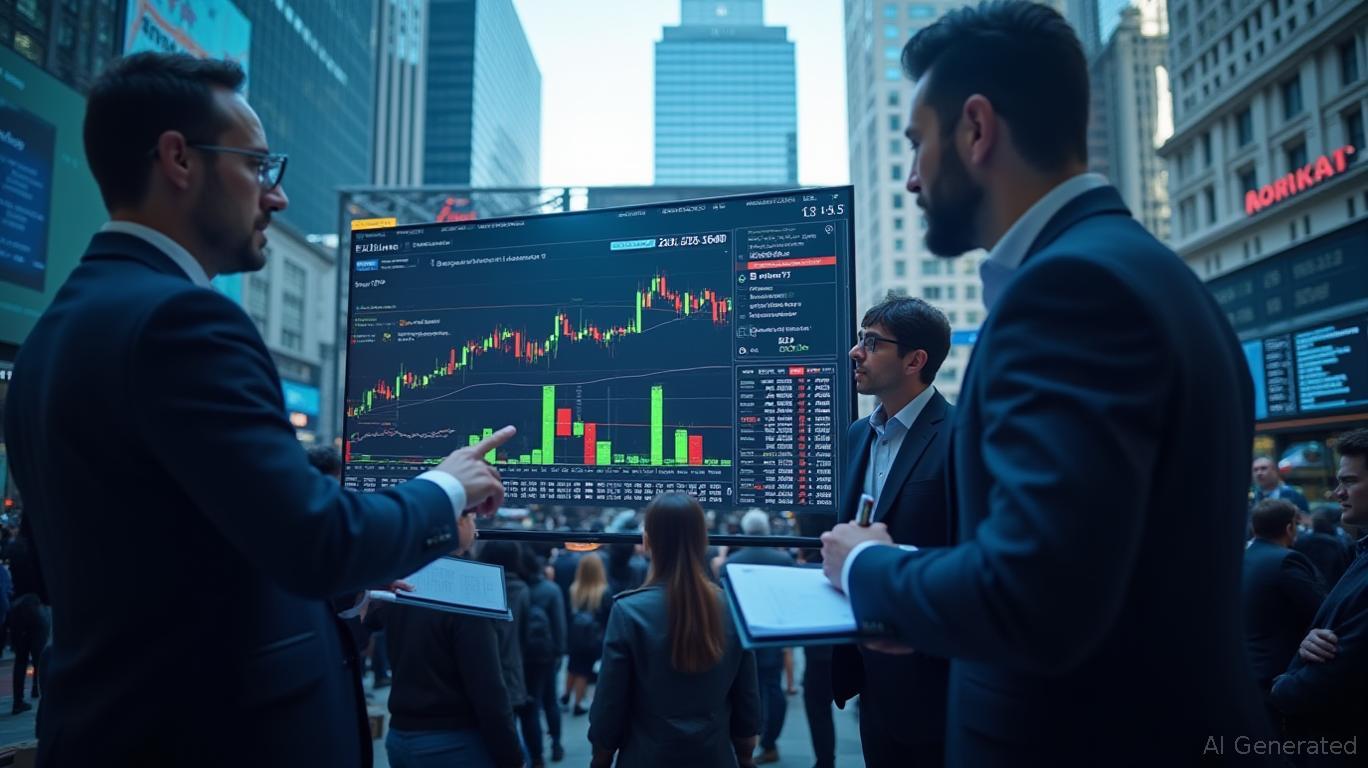US Court Verdict Reveals Surprising Details On Argentina’s LIBRA Meme Coin Scandal
A US court blocked creditors from seizing LIBRA crypto assets, finding the funds likely tied to Javier Milei’s inner circle, not the Argentine state—complicating both the debt recovery case and Milei’s political troubles.
A US court rejected a seizure request by international investment funds that sought to link crypto funds linked to the LIBRA scandal to the Argentine State.
Instead, a judge noted that the evidence pointed toward private individuals as the parties controlling the funds. The conclusion further complicated the involvement of Argentine President Javier Milei, his sister Karina, and LIBRA promoter Hayden Mark Davis.
Judge Points Finger at Milei Insiders
This week, Federal Judge Jennifer Rochon in the Southern District of New York denied a request by international investment funds that had attempted to seize LIBRA cryptocurrency assets by linking them to the Argentine State.
Rochon argued that the evidence was insufficient to prove state ownership. Instead, she suggested that the millions generated by LIBRA could belong to Milei, his sister and Secretary General Karina Milei, or Mark Hayden Davis, who helped launch and promote the meme coin.
$Libra: la jueza Rochon le negó la información de las ganancias de la estafa global a un fondo que litiga contra Argentina. Dijo que no afirma (ni niega) que los más de 100 millones de dólares que admitió tener Hayden Mark Davis puedan ser de él, Javier Gerardo y Karina Milei.👇 pic.twitter.com/4LRT8NNxU7
— Juan Alonso (@jotaalonso) October 21, 2025
The ruling frustrated the funds’ attempt to locate assets to recover a loan to Argentina after the country suffered an acute economic crisis in 2001.
The asset seizure case is legally distinct from the civil class-action lawsuit filed against Milei by retail investors over their $251 million in losses. Nonetheless, it still highlights and complicates his connection to the broader scandal.
Why Foreign Creditors Tried Seizing LIBRA Assets
The request to Rochon represented a calculated move by four major investment funds seeking to get paid for a major debt.
Palladian Partners, HBK Master Fund, Hirsh Group, and Virtual Emerald International Limited comprise the four financial firms that own bonds that were part of the major debt restructuring following Argentina’s massive 2001 sovereign default.
Specifically, they hold GDP-linked securities, which promise creditors a payout if Argentina’s economy grows above a certain threshold. In 2019, these funds sued Argentina in a UK court, arguing that the country had incorrectly calculated its GDP to avoid triggering the payment on these bonds.
In 2023, the court ruled in the funds’ favor, ordering that Argentina pay them over $1.5 billion in debt owed. However, since then, Argentina has failed to do so.
In light of this, the funds have launched a global campaign to locate and seize any assets belonging to the Argentine State that they could find in other countries.
Following the LIBRA scandal, the funds have sought to justify the seizure of millions of dollars generated by insiders due to the token launch.
Creditors’ Crypto Bid Backfires on Milei
The four international investment funds targeted the LIBRA scandal because it was a new, high-value asset that Milei strongly promoted.
In their latest appeal before the Southern District of New York, these funds needed to prove that the billions generated by the token belonged to the Argentine state, not to private individuals.
If they could prove this, they could legally try to seize the LIBRA profits to cover their debt. The funds requested extensive documentation from Meteora, the Solana platform that launched LIBRA. They also demanded testimony from several individuals to prove their cause.
However, the fruits of their efforts actually backfired.
Judge Rochon rejected the funds’ request because the creditors failed to provide enough credible information to justify involving the US court system in a dispute primarily concerning a foreign state and foreign creditors.
The funds were criticized for engaging in a “fishing excursion,” meaning they were not seeking specific, relevant evidence. Instead, they used the court’s power to conduct a speculative investigation into the entire cryptocurrency operation.
She noted specifically that their evidence pointed to private ownership, further complicating Milei’s participation in the scandal.
Disclaimer: The content of this article solely reflects the author's opinion and does not represent the platform in any capacity. This article is not intended to serve as a reference for making investment decisions.
You may also like
SUSHI Drops 23.17% Over a Month Due to Reduced Margins and Production Issues
- SUSHI fell 5.44% in 24 hours to $0.5154, with a 23.17% monthly and 62.16% annual decline. - SUSS cut 2025 margin targets to 35-37% gross and 11-13% EBIT due to weak Q3 results and cost pressures. - Despite maintaining €470-510M sales guidance, Q3 gross margin dropped to 33.1% and EBIT to 10.5%. - Order intake fell 17% YoY to €70M, with analysts citing mix challenges and dual-site production costs. - Technical indicators confirm sustained bearish momentum, signaling persistent operational and financial he
XRP News Today: XRP's Recent Rise Fueled by Institutional Confidence in Blockchain and Wall Street Integration
- XRP surged over 10% weekly, driven by institutional demand and regulatory progress, closing Q3 at $2.85 with a $170.3B market cap. - Real-world asset (RWA) issuance on XRP Ledger hit $364.2M in Q3, fueled by tokenized funds like Ondo’s OUSG and Guggenheim’s paper. - Seven U.S. XRP ETF applications await SEC decisions (Oct 2025–Nov 2025), with Polymarket odds at 99% for 2025 approval. - Institutional buyers like Trident Digital ($500M) and SBI Holdings ($10B) boost XRP’s appeal amid supply controls via to
Bitcoin News Update: Bitcoin ETFs Strengthen "Digital Gold" Reputation While Ethereum ETFs Experience Withdrawals
- Bitcoin ETFs saw $90.6M inflows on Oct 24, led by Fidelity’s FBTC ($57.9M) and BlackRock’s IBIT ($32.7M), ending a 5-day outflow streak and boosting Bitcoin’s price to $111,633. - Ethereum ETFs showed volatility, with $246M inflows on Oct 28 but $126M outflows the prior day, reflecting shifting institutional preferences toward Bitcoin as a stable store of value. - ETFs now hold 6.78% of Bitcoin’s $1.49T market cap vs. 5.55% for Ethereum, driven by Bitcoin’s deflationary model and growing gold correlation

AI Hopes Versus Global Tensions: Federal Reserve Rate Reductions, Nvidia’s Rise, and the Delicate U.S.-China Ceasefire
- Fed to cut rates 25 bps amid 3% core CPI growth, with further cuts likely if labor data weakens. - Nvidia expands Israel R&D hub, partners with African firms and maritime tech to boost global AI infrastructure. - U.S.-China trade deal delays tariffs, eases rare earth restrictions but leaves Taiwan/Hong Kong tensions unresolved. - Markets balance AI optimism (Microsoft, Apple earnings) against geopolitical risks ahead of Trump-Xi summit.

